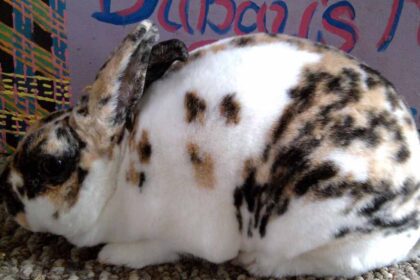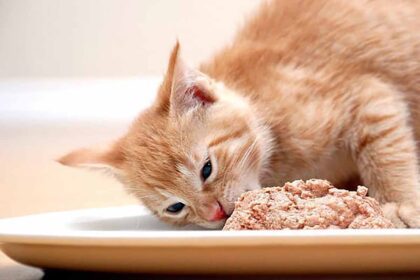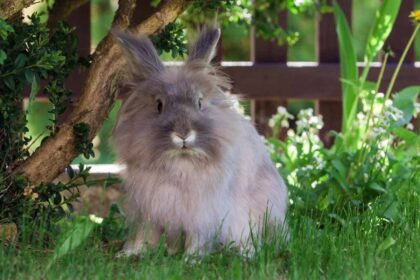Imagine your beloved guinea pig, normally a bundle of energy, suddenly refusing to eat and becoming lethargic. This scenario, unfortunately, is quite common among guinea pig owners and is often a sign of dental disease. Studies show that dental issues are among the most frequent health problems in guinea pigs, affecting a significant percentage of these pets.
Understanding dental health is crucial for the overall well-being of guinea pigs because their teeth continuously grow throughout their lives, making them prone to various dental problems.
In this blog, we’ll dive deep into guinea pig dental anatomy, explore common dental diseases, uncover their causes, identify signs and symptoms, discuss diagnostic and treatment options, and provide prevention tips.
Understanding Guinea Pig Dental Anatomy
Guinea pigs have distinct dental structure, with constantly growing incisors and molars.
Unlike humans, who have a set number of teeth that stop growing, guinea pigs’ teeth grow throughout their lives, necessitating constant chewing to wear them down. This continuous growth helps in their natural diet of fibrous plants but can become problematic if their teeth do not wear evenly.
Unlike other small pets, guinea pigs have both upper and lower incisors that are highly visible, and molars that are crucial for grinding food but harder to examine without special tools.
Common Dental Diseases in Guinea Pigs
Malocclusion
Malocclusion is one of the most common dental problem for guinea pigs, where the teeth are misaligned. This condition can affect both the incisors and molars, leading to severe difficulties in eating and drinking. It’s estimated that a significant number of guinea pigs will suffer from some form of malocclusion during their lifetime. Symptoms include difficulty eating, drooling, and noticeable weight loss.
Dental Abscesses
Dental abscesses occur when an infection leads to pus-filled swellings in the mouth or jaw. These can develop due to untreated malocclusion or injuries. Common signs include visible swelling, pus discharge, and pain, often causing the guinea pig to avoid eating.
Elongated Roots
Elongated roots are another serious condition where the roots of the teeth grow excessively, often due to improper wear. This can cause symptoms such as eye-bulging or nasal discharge, as the elongated roots can press on surrounding tissues.
Tooth Fractures
Tooth fractures can happen due to trauma or biting on something too hard. This condition is characterized by sudden loss of appetite and visible tooth damage. If left untreated, it might result in more serious tooth problems or infections.
Common Causes of Dental Diseases in Guinea Pigs
Dietary Factors
Dietary factors play a significant role in guinea pig dental health. A diet lacking in fiber can prevent proper tooth wear, leading to overgrown teeth. Research indicates that a diet high in hay significantly improves dental health, as the chewing action helps keep the teeth properly worn.
Genetic Predispositions
Genetic predispositions also contribute to dental issues. Certain breeds, like the Abyssinian and Peruvian, are more prone to dental problems due to their genetic makeup. Heredity plays a crucial role, and it’s important to be aware of any familial dental issues when adopting a guinea pig.
Environmental Factors
Environmental factors such as the availability of appropriate chewing materials can impact dental health. Guinea pigs need constant access to safe chew toys and fibrous food to maintain healthy teeth. Case studies have shown that guinea pigs provided with a rich, stimulating environment have fewer dental problems.
Age-Related Factors
Age-related factors come into play as guinea pigs age. Older guinea pigs are more susceptible to dental diseases due to the cumulative effects of improper wear and tear over the years. Regular dental checks become even more critical as guinea pigs grow older to catch and treat any emerging problems early.
Signs and Symptoms of Dental Problems in Guinea Pigs
Behavioral Changes
Behavioral changes are often the first indicators of dental issues. A guinea pig suffering from dental disease may lose its appetite, show reluctance to eat hard foods, or display increased aggression or irritability due to pain.
Physical Symptoms
Physical symptoms include visible misalignment of teeth, drooling, and significant weight loss. Owners should regularly check for these signs, as early detection can make a big difference in treatment outcomes.
Secondary Symptoms
Secondary symptoms such as digestive issues can arise from poor dental health. Inadequate chewing can lead to gastrointestinal problems, while severe dental issues might also cause respiratory problems due to the proximity of the teeth to the nasal passages.
Diagnosing Dental Diseases in Guinea Pigs
veterinary Examination
A thorough veterinary examination is essential for diagnosing dental diseases in guinea pigs. During a check-up, the vet will use tools like X-rays and oral exams to assess the health of the teeth and identify any problems. Regular dental exams can help catch issues before they become severe.
Self-Checks for Owners
Owners should learn how to safely examine their guinea pig’s teeth at home, looking for signs like overgrown or misaligned teeth. If any abnormalities are noticed, it’s crucial to seek professional help promptly.
Treatment Options for Guinea Pig Dental Issues
Professional Treatments
Professional treatments for dental diseases in guinea pigs often include dental trimming and filing procedures to correct overgrown or misaligned teeth. In severe cases, surgery might be required to remove abscesses or elongated roots.
Home Care Tips
Home care tips are vital for maintaining dental health. Owners should provide a balanced diet rich in high-fiber hay and fresh vegetables. Additionally, offering appropriate chew toys can help keep the teeth properly worn.
Medication
Medication may be necessary for managing pain and treating infections. Antibiotics can be used for abscesses, while pain management is crucial for ensuring the guinea pig’s comfort during recovery. It’s important to discuss the risks and benefits of any medication with a vet.
Preventing Dental Diseases in Guinea Pigs
Dietary Recommendations
Dietary recommendations are the cornerstone of preventing dental diseases. A diet high in fiber, including plenty of hay and fresh vegetables, helps keep the teeth worn down naturally and prevents overgrowth.
Regular Health Checks
Owners should take their guinea pigs for veterinary check-ups at least once a year, and more frequently if any dental issues are suspected. At-home dental checks should be done regularly to catch early signs of problems.
Enrichment Activities
Activities like providing safe chew toys and opportunities for natural gnawing behavior can greatly contribute to maintaining healthy teeth. Guinea pigs need constant stimulation to encourage natural chewing and prevent dental issues.
In summary, dental diseases are a significant concern for guinea pig owners, but with proper understanding and proactive care, these issues can be managed and often prevented. Regular veterinary check-ups, a balanced diet rich in fiber, and safe chew toys are essential steps in ensuring your guinea pig’s dental health.
By taking these preventive measures, you can help your guinea pig live a healthy, happy life free from dental problems.
Frequently Asked Questions about Dental Diseases in Guinea Pigs
How often should I check my guinea pig's teeth?
It’s recommended to check your guinea pig’s teeth weekly at home and have a professional check-up at least once a year.
How much does a typical dental procedure cost for a guinea pig?
The cost can vary widely depending on the procedure, ranging from $50 for a simple trim to several hundred dollars for more complex treatments or surgeries.
Are some guinea pig breeds more prone to dental issues than others?
Yes, breeds like the Abyssinian and Peruvian are more prone to dental problems due to their genetic makeup.
What are the risks of untreated dental diseases?
Untreated dental diseases can lead to severe pain, infections, weight loss, and even life-threatening conditions due to secondary health issues like digestive or respiratory problems.














Comments are closed.